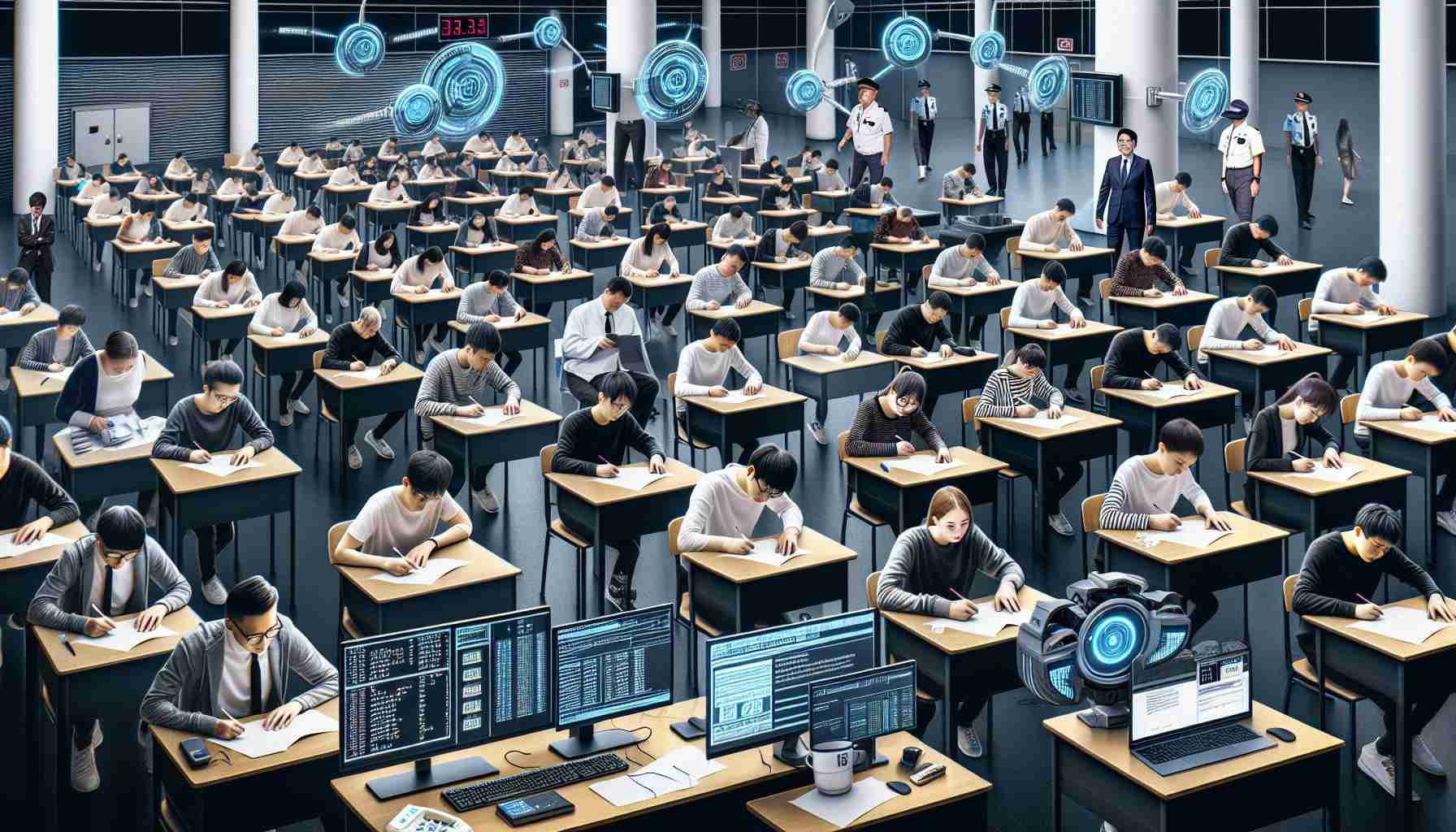Advancements in AI Boost Exam Integrity
China has implemented artificial intelligence technology in a major effort to uphold fairness in its most critical academic exam, the gaokao. Recognized as a defining milestone in a student’s educational journey, this highly competitive university entrance examination has stirred authorities in select regions to deploy AI systems to deter and detect any misconduct.
Proactive Anti-Cheating Measures in Guangdong and Beyond
For the first time in history, Guangdong province utilized real-time AI monitoring across 386 examination sites. By analyzing image and video data within the examination halls, the sophisticated AI system promptly recognizes abnormal behaviors, such as cheating or copying, and instantly sends alerts for immediate action by proctors.
Hainan and Chongqing Explore AI Supervision
Hainan province is running pilot programs that employ AI for real-time checking and surveillance at their exam locations to effectively catch and warn against disciplinary violations. Similarly, Chongqing, located in Southwest China, harnesses AI systems at selected sites to investigate and scrutinize peculiar activities during the gaokao.
Beijing’s Smart Surveillance Uplift and National Security Assistance
Beijing has upgraded its smart surveillance system, enhancing its image recognition capabilities. Minor gestures like turning heads, bending down, or suspicious interactions between proctors and examinees are meticulously recorded, enabling rapid detection of potential infractions.
Futuristic technology such as radar, patrolling robots, and drones are increasingly being deployed across numerous cities to support candidates during this national exam. However, despite the efficiency of AI, human vigilance remains integral. Analysts note while AI cannot fully replace human oversight, it is instrumental in maintaining the exam’s integrity and easing supervisors’ burdens. With continuous development in AI, further technological innovations are anticipated to reduce and perhaps even eradicate cheating in future academic assessments.
Relevant Facts about China’s Use of AI in Examinations:
– The gaokao, or National Higher Education Entrance Examination, is the most important exam for high school students in China, determining their eligibility for higher education and thus shaping their future careers.
– With a large pool of students participating in this exam (over 10 million annually), maintaining the integrity of such a widely administered test is logistically challenging.
– AI technology being employed in such exams includes facial recognition, anomaly detection algorithms, and sometimes voice recognition to prevent impersonation.
– Other countries also use technology to ensure exam integrity, though the scale and sophistication may vary compared to China’s use of AI.
Important Questions and Answers:
Q: Why is China implementing AI to prevent cheating in the gaokao?
A: China is implementing AI to prevent cheating in the gaokao to ensure the fairness and integrity of this critically important academic evaluation and to manage the large scale of the exam efficiently.
Q: What are the key challenges with using AI for exam supervision?
A: Key challenges include maintaining the privacy of students, dealing with false positives (AI detecting cheating when none is occurring), ensuring the reliability of AI systems, and addressing any biases that might exist in AI algorithms.
Controversies:
– Privacy Concerns: The use of AI in monitoring exams raises concerns about the collection and storage of personal data, as well as the constant surveillance of minors.
– Accuracy and Fairness: There is potential for AI systems to falsely accuse students of cheating, or to miss some cheating incidents, which could result in unfair outcomes.
Advantages:
– Efficiency: AI can monitor many students simultaneously, making it more efficient than human proctors alone.
– Deterrence: The presence of sophisticated AI systems may deter students from attempting to cheat.
– Support for Proctors: AI can alleviate some of the monitoring burdens on human proctors, allowing them to be more effective.
Disadvantages:
– Costs: Implementing such high-tech systems can be costly.
– Psychological Pressure: Constant monitoring by AI can create stress and anxiety among students, potentially impacting their performance.
– Dependence on Technology: An over-reliance on AI could diminish human proctors’ roles and their ability to handle nuanced situations.
Related Links:
For more information on similar contexts and developments in education technology, you can visit the following main domains:
– UNESCO (for a global perspective on education and technology)
– IEEE (for technological advancements and research)
– Artificial Intelligence Organization (for AI-related news and resources)
Please note that the URLs provided are only for the main domains and do not lead to specific articles or subpages. For in-depth information, exploring dedicated sections within these domains related to education and AI is advised.
The source of the article is from the blog myshopsguide.com

